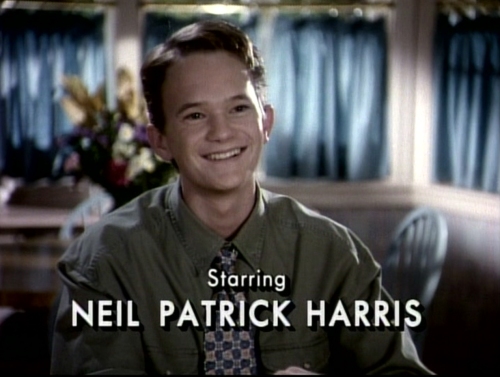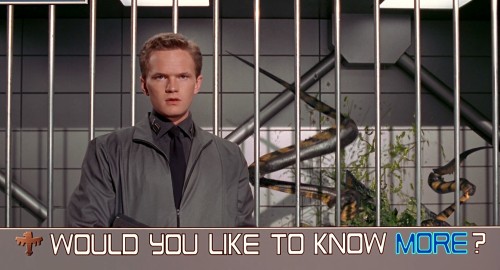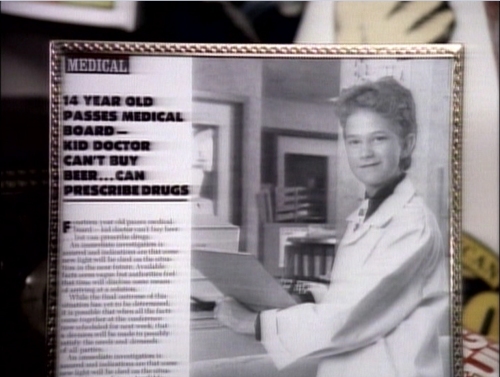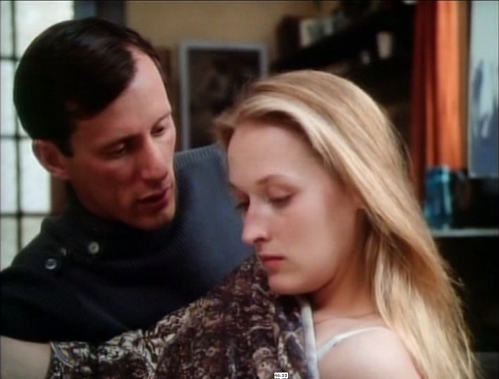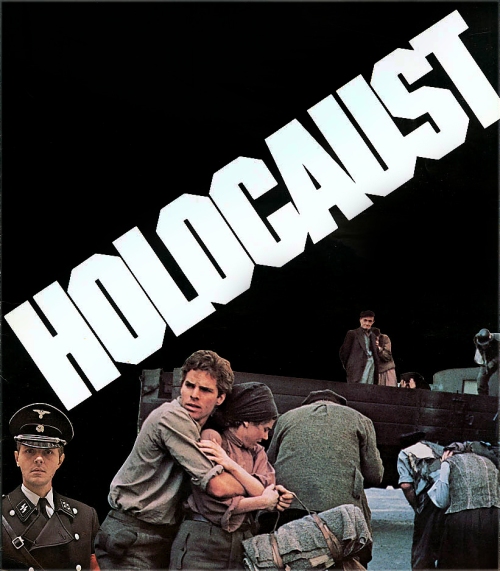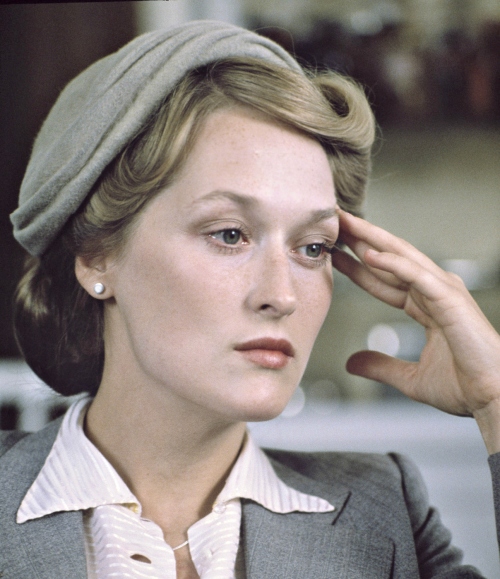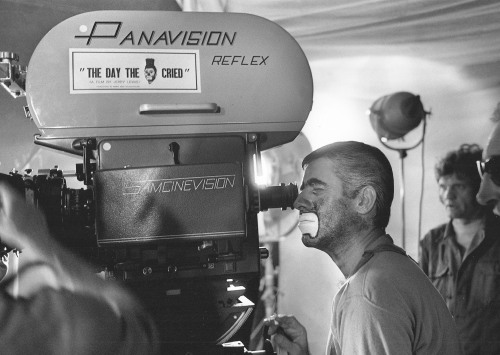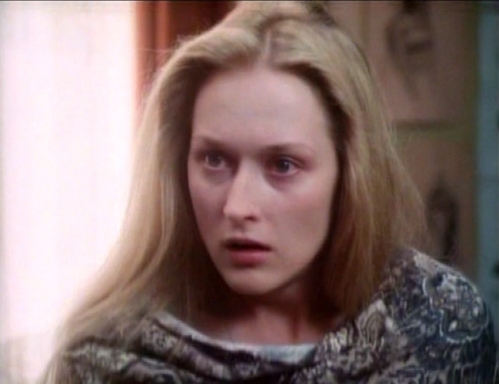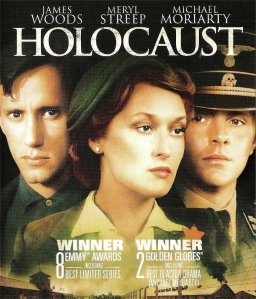DOOGIE HOWSER, M.D. (Season 4)
Neil Patrick Harris / Max Casella / Belinda Montgomery / Lawrence Pressman / Mitchell Anderson / Kathryn Layng / Lisa Dean Ryan / Lucy Boryer / Markus Redmond / James B. Sikking Mitchell Anderson / Theme by Mike Post / Created by Stephen Bochco & David E. Kelley
——————
With the success of ‘The Big Bang Theory‘, the geek has somehow stepped out of the shadows and almost taken on a sort of ironical cool. Popular culture radiates towards oddball characters, and they don’t come much stranger than Doogie Howser, with his 50’s alien genius forehead, and stoic, monotone computer delivery. Neil Patrick Harris as Doogie Howser projected an almost Magyver-like geeky-cool, as a kid prodigy who is forever struggling with one foot in the adult world, while the other hesitatingly tries to understand his teenage contemporaries. The Doogie persona managed to make an indelible impact on the cultural consciousness, despite being axed by it’s network after only 4 Seasons (a drop in the ocean next to other far less competent shows that sailed through on a wing and a prayer). Child prodigies seem to have cropped up left, right and centre since Doogie Howser shut up shop, from the Tv comedy geekery of ‘Big Bang’, to comic book child superheroes like ‘Kick-ass‘ and the X-Men kids taking to the big screen. Wrapped up in the mutated genius character, Neil Patrick Harris himself has carried the character of Doogie around ever since, appearing in each and every subsequent role as a sort of aged version of the smart kid in the sneakers. His appearance as the genius, ‘head-hunted from high-school’ in ‘Starship Troopers‘ being the clearest ‘what Doogie did next’ addendum.
A genius idea about a genius kid who was so smart he got fast-tracked through High School and became a Doctor by the age of 16. Oddly billed as a comedy-drama, Doogie Howser was never shy in bringing serious issues to a younger, perhaps unsuspecting audience, serving up snappy half-hour takes on such tricky subjects as racism, gang culture, Aids and Homophobia, while rather uniquely blending them with a liberal dollop of teen angst. The format is now a familiar one, thanks to the Show’s creative force, Stephen Bochco, that of an exploration of a serious topic through sympathetic characters, who go on a journey of conscience within the episode, and then tell us what they’ve learnt at the close… a sort of entertaining, warm hearted essay. In this case we have the last word given by Howser in the form of his journal entry, either spoken or scrolling across the screen for us to read. A form that ‘Sex and the City‘ used to clever effect, to structure the episode around it’s literary, narrative origins. This sense of the the ‘narrative’ as a device within the show itself crops up from time to time in other ways, most notably with Doogie’s best friend ‘Vinnie Delpino‘ (Max Casella, who recently appeared alongside Brad Pitt in ‘Killing them Softly‘), who as Howser’s grounding contact with kids his own age, extends the documentary style by repeatedly filming within the scenes with a video camera, ubiquitously delivering Scorsese type lines… ‘Hey! That camera is my life‘!’
The Stephen Bochco magic spawned both Hill Street Blues and LA LAW for the mature audience, but managed to cut as much sway with the younger viewers via Doogie Howser. Later seasons, most notably Season four ran into the all too typical pattern of taking jaunts into surreal dream states to perhaps make up for a lack of plot ideas.. a structure that later American hits like Ally McBeal would make a more fundamental part of their main concept (perhaps even more effectively used in the French film ‘Amelie‘, which clearly took inspiration in part from McBeal’s flair for the surreal moment). Doogie need not feel too upset with his four Season run though.. since, let’s face it, he couldn’t stay a teen Doctor forever, so the Show had an inbuilt flatline, that would eventually collide with it’s star’s advancing maturity. Re-watching Doogie Howser is a delight that I hadn’t quite expected. Like greeting an old geeky, childhood friend, who thanks to good judgement, has retained his youthful vigour for life, and didn’t get any taller.
STILLS & PROMOS
————————————————————————————————————————————————————–
